Hydrogen/CNG Container Inspection Instructor-Led Training Course
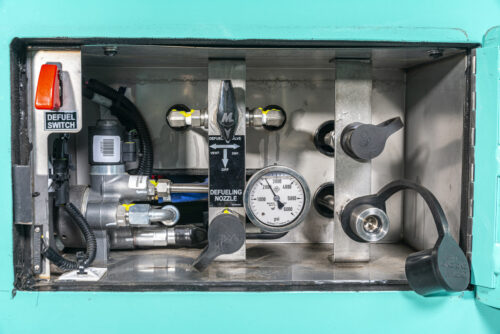
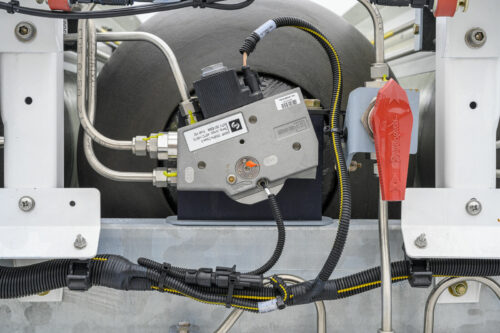
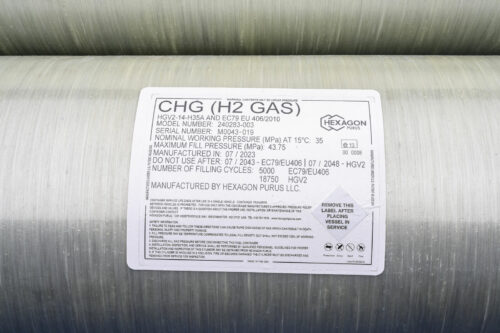
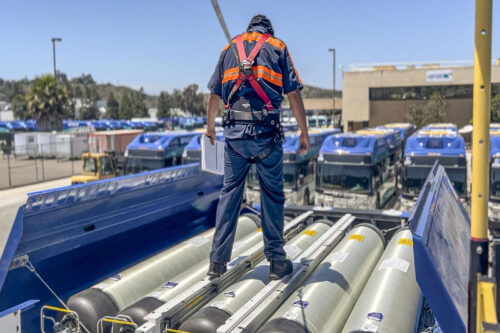
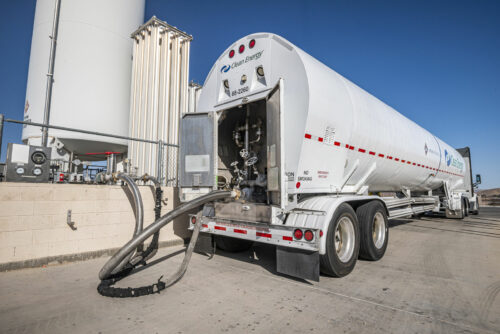
Dive into the world of alternative fuels with the Hydrogen/CNG Container Inspection course, a comprehensive training designed to enhance your expertise in the inspection, maintenance, and safety of hydrogen and Compressed Natural Gas (CNG) fuel systems.
This 16-hour course, spread over two days, equips participants with practical skills and knowledge, enabling them to conduct thorough inspections and uphold the safety standards of high-pressure containers used in transit vehicles.
Participants will leave this intensive training prepared to take the CSA Fuel Systems Inspector Exam. The course not only covers the technical competencies required for certification but also emphasizes adherence to manufacturers’ guidelines and regulatory standards, ensuring participants can perform detailed safety checks.

Whether you’re a professional seeking certification or looking to deepen your understanding of fuel system technologies, this course offers valuable insights and hands-on experience in the rapidly evolving field of hydrogen and CNG transportation.
The Hydrogen/CNG Container Inspection course provides in-depth training on the inspection, maintenance, and safety procedures for hydrogen and Compressed Natural Gas (CNG) fuel systems. It is designed to equip participants with the knowledge and practical skills to perform thorough inspections and ensure the safety and integrity of hydrogen and CNG containers used in transit vehicles.
Additionally, this course prepares participants for the CSA Fuel Systems Inspector Exam, covering all necessary competencies to ensure exam readiness. Participants will learn to identify and assess potential hazards, follow manufacturers’ recommendations, and comply with government and industry standards.
This course prepares participants for the CSA Fuel Systems Inspector Exam. CSA exam objectives include:
- Preparation for Inspection: Follow the steps required before inspecting hydrogen and CNG containers, including obtaining and evaluating vehicle history to identify potential hazards.
- Determine Inspection Requirements: Implement manufacturers’ recommended inspection requirements and identify appropriate government and industry codes and standards.
- Pressure Relief Device (PRD) Inspection: Inspect PRDs to ensure proper functioning and safety.
- Physical Inspections: Thoroughly inspect brackets and other high-pressure components to identify any signs of wear or damage.
- Assessment of Cylinder: Conduct detailed visual inspections to assess the physical condition of hydrogen and CNG cylinders, recognizing levels of damage and determining appropriate actions.
- Original Fuel System Installation: Verify the original installation of hydrogen and CNG fuel systems to ensure compliance with safety standards.
- Inspection Reporting: Accurately complete inspection forms and related documentation to provide detailed reports on the condition of a vehicle’s fuel system.
In-person course duration: 16 hours over 2 days
In this course, participants will:
- Identify key components related to hydrogen and CNG fuel systems
- Explain the functions of fuel system components
- Differentiate between the types of fuel containers and their specific characteristics
- Demonstrate correct procedures for inspecting hydrogen and CNG containers
- Assess the safety and condition of containers based on inspection guidelines
- Outline a maintenance plan that includes regular inspections and safety checks
- Recall the standard operating pressures for hydrogen and CNG systems
- Explain the importance of proper documentation in fuel system inspections
- Participants should understand mechanical systems and be familiar with fuel systems.
- 5-year renewal period. Certification holders must complete the CNG-FSI certification exam to recertify.
